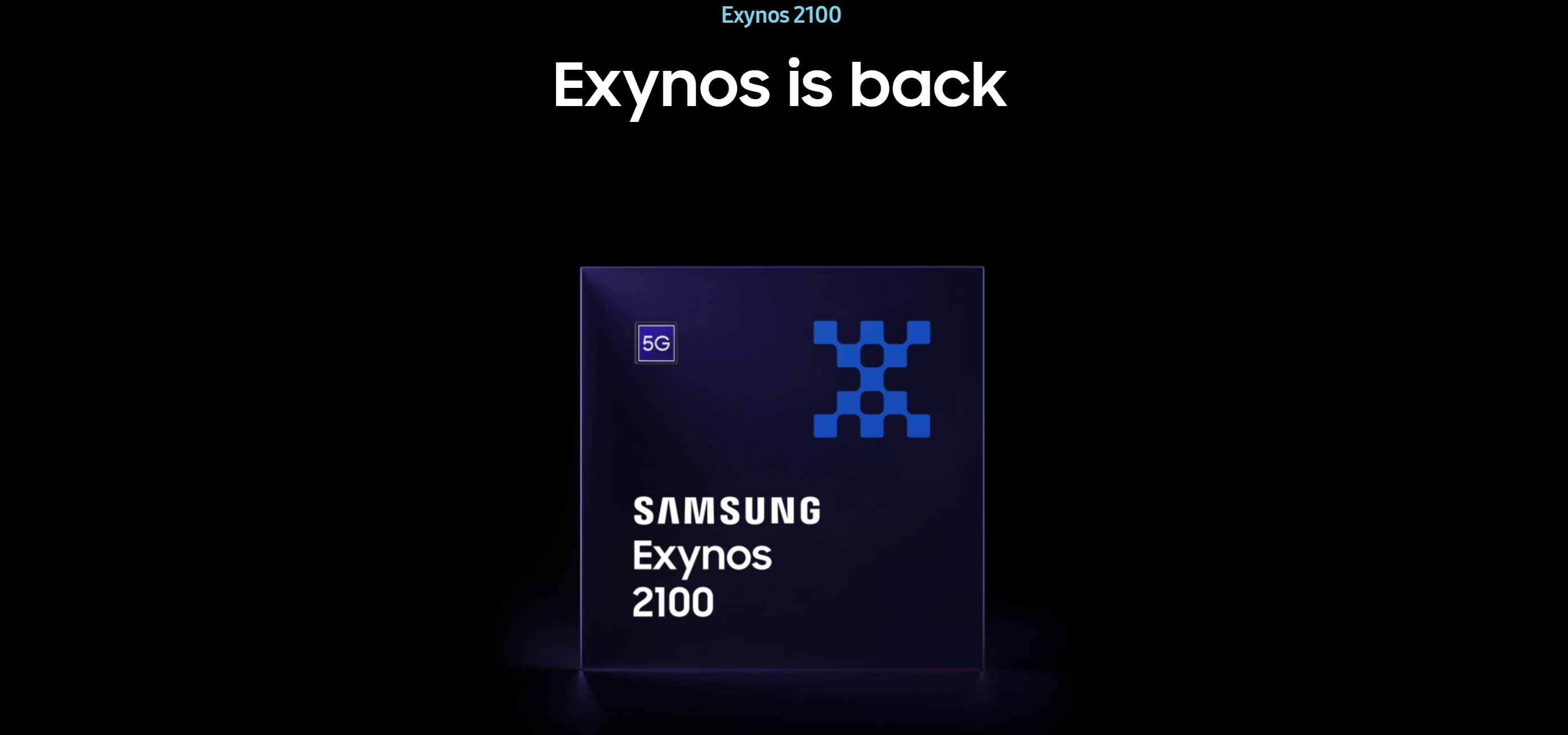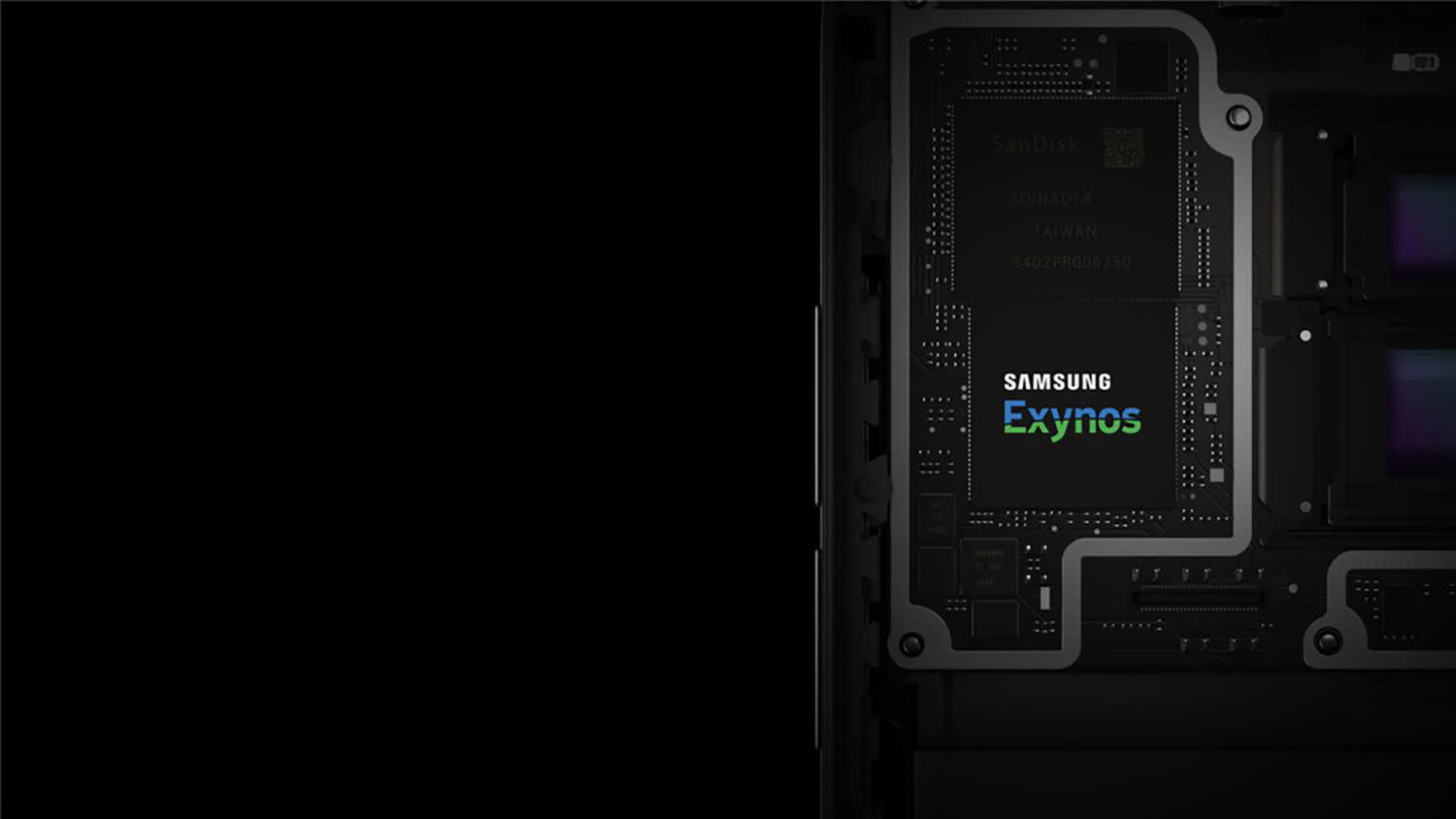TL;DR: The Exynos 990 was a failure due to its inferior performance when compared to Qualcomm's Snapdragon chips, but this time Samsung promises that its latest mobile chipset has been designed to "surpass the power user's performance expectations." On paper, it does look like a compelling upgrade, but only time will tell if it measures up to the Snapdragon 888.
Samsung has announced the latest Exynos SoC that will power its next crop of flagship Galaxy smartphones, the Exynos 2100. The new chip is built on a 5nm EUV process node and is a different beast than previous Exynos chips in that it's designed completely around Arm's latest Cortex cores.
This is possibly in response to numerous complaints and petitions that demanded Samsung drop Exynos mobile platforms as it wasn't quite comparable with Qualcomm chips in terms of performance per watt, image processing, and thermals. Additionally, the Korean tech giant has chosen to integrate the 5G modem into the chipset, whereas the Exynos 990 relied on a separate part.

The new Exynos 2100 SoC is built on a tri-cluster architecture with one top-performance Arm Cortex-X1 core that runs at up to 2.9 GHz, three high-performance Cortex-A78 cores that run at up to 2.8 GHz, and four power-efficient Cortex-A55 cores. Samsung says this configuration provides a sizable 30 percent performance uplift compared to the Exynos 990.
The GPU is based on the Arm Mali G78MP14, which is also found in Huawei's Kirin 9000 SoC. Here it only used 14 of the available 24 cores, as Samsung is trying to hit lower power consumption figures and improve battery life. To that end, the company also employs the in-house built AMIGO multi-IP governor which balances performance and power usage according to what happens on-screen. Overall, this should provide a 40 percent performance uplift compared to the previous generation.

The image signal processing capabilities of the Exynos 2100 are definitely impressive on paper, as Samsung says it supports sensor resolutions of up to 200 megapixels and can work with as many as six sensors (and only four sensors simultaneously). But more importantly, the company promises this can best the Snapdragon 888 through the ability to capture 4K video at 120 fps and 8K at 60 fps.
The new chip also comes with a better neural processing unit capable of up to 26 trillion operations per second with better efficiency when compared to the Exynos 990, which means it's comparable to the Hexagon 780 neural processing unit found in the Snapdragon 888 SoC. As for the 5G modem, it supports both sub-6 GHz and mmWave spectrums while delivering download speeds of up to 5.1 Gbps and 7.35 Gbps, respectively.
During the announcement, Samsung praised its renewed partnership with Arm in developing the Exynos 2100, which is expected to power the Galaxy S21.
The South Korean giant also offered an updated timeframe for when we might see AMD Radeon graphics in its smartphones: not until 2022.
https://www.techspot.com/news/88255-samsung-exynos-2100-here-prove-qualcomm-snapdragon-888.html